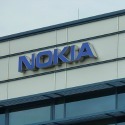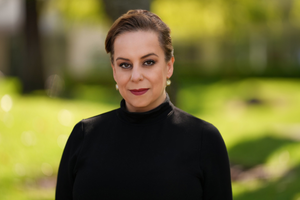
Also in today's EMEA regional roundup: Deutsche Telekom and Orange join forces on smart-glasses tech; Telefónica connects Europcar; Bulgaria is clean, says the US.
Nokia has been chosen as a supplier of 5G radio network equipment by Finnish Shared Network Ltd (SYV), a joint operation of DNA and Telia Finland. The rebooted network, which will also benefit from an upgrade of 2G, 3G and 4G capabilities, will enable SYV to provide "advanced 5G services" across the northern and eastern parts of Finland, says Nokia. Deployment of the infrastructure will begin in early 2021 and is scheduled for completion by the end of 2023.
Deutsche Telekom is joining forces with Orange in an attempt to create an "ecosystem" for extended reality (XR) applications, many of them centered on "smart glasses" that allow their wearers to engage digitally without looking down at their smartphones. The hope is that such an ecosystem will make it easier for startups with XR chops to launch products and services that draw on the nascent technology.
Vehicle rentals firm Europcar says it is "strengthening its alliance" with Spanish telco Telefónica and Geotab, a fleet management company. The partnership is intended to provide Europcar with a range of connected-car goodies, such as access to data relating to engine performance, driving behavior and location.
Arcep, the French communications regulator, has given its approval to the proposed extension of Free's agreement to roam on Orange's 2G and 3G networks by two years. In its statement on the matter, Arcep concluded by saying it "will remain attentive to Free Mobile's ongoing spending on the deployment of its own networks."
Bulgaria has been accepted onto the US State Department's Clean Network initiative, signing a declaration on the security of its 5G networks. As Reuters reports, Bulgaria joins 27 of the 30 NATO member states who have already been ushered beyond the velvet ropes by committing to use "trusted vendors," which in this context basically means not Chinese ones. (See US-China telecom war is here to stay and Trump now forcing global carriers to pick a side.)
MTN Nigeria has appointed Karl Toriola as its new CEO. Toriola, who is currently vice president for MTN's West and Central Africa (WECA) region, takes over from Ferdi Moolman, who is returning to MTN's South African mothership, where he will assume the role of group chief risk officer.
Sparkle, Telecom Italia's international services arm, has won "Best Middle East Africa Project" at the Global Carrier Awards for its point-of-presence in Aqaba, which serves as a strategic corridor between Jordan, its neighboring countries and Europe.
UK cable operator Virgin Media has extended its "Project Lightning" fiber rollout to Dronfield, bringing average top speeds of 516 Mbit/s to 6,900 homes in the Derbyshire town.
— Paul Rainford, Assistant Editor, Europe, Light Reading
Read more about:
EuropeAbout the Author(s)
You May Also Like












